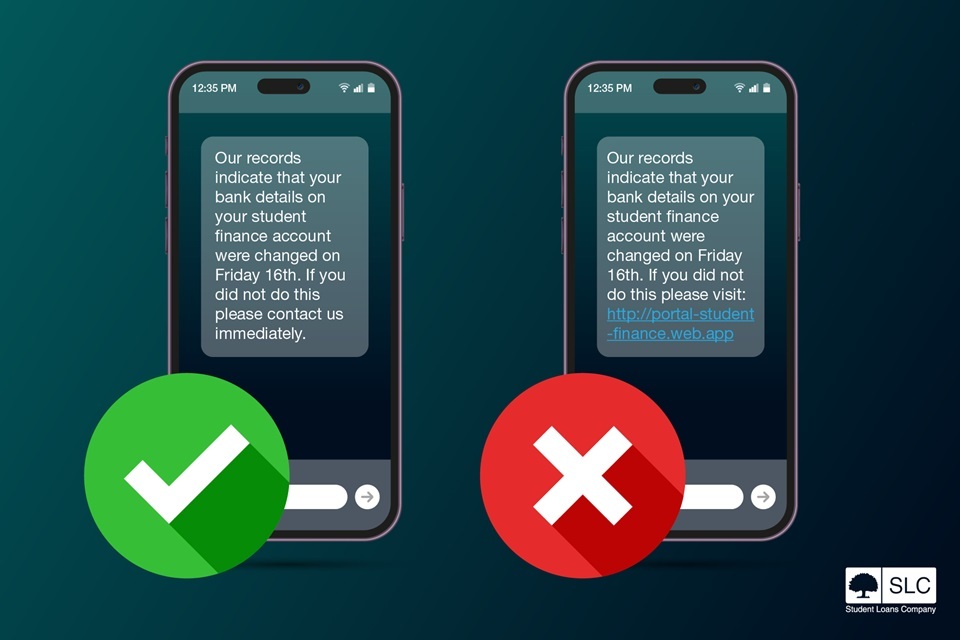
Beware: Student Smishing Scams Soar as Academic Year Kicks Off
As the 2024/2025 academic year begins, the Student Loans Company (SLC) is issuing a crucial warning to students about a surge in smishing scams. This time of year, when many students are receiving their first maintenance loan payments, is particularly ripe for scammers to strike. The SLC is preparing to distribute a staggering £2 billion to students throughout the autumn term, but last year alone, they managed to prevent £2.9 million from falling into the hands of fraudsters thanks to quick action against smishing and phishing scams.
Smishing, which involves fraudulent text messages, is currently the most prevalent type of scam targeting students. Typically, these messages entice students to click on a link, purportedly for tasks such as verifying bank details or confirming personal information. Once students comply, their funds can be diverted to the scammer's account. The SLC has made it clear that they will never request personal or financial information through email or text message.
Alan Balanowski, the Risk Director at SLC, has emphasized the importance of vigilance. He notes, "Starting or returning to university is an exciting time, but it’s also busy. Students are dealing with various communications as they set up for the academic year, including from our organization. While we strive to make our payment process straightforward, we do see an increase in smishing scams at this period. It's crucial for students to stay alert to any attempts to intercept their maintenance loan payments."
Also Read:- Emmys 2024 Highlights: 'Shōgun,' 'Baby Reindeer,' and 'The Bear' Steal the Show
- New Covid XEC Variant: What You Need to Know About Its Symptoms and Spread
Balanowski further stresses that combating these scams is a collaborative effort. "We have preventive measures in place, but the most effective way to fight these scams is by working together with students. If you receive a suspicious message, delete it and report it immediately. If your personal details are compromised, swift action is necessary to block the scammer."
To safeguard yourself, remember these tips: neither SLC nor Student Finance England (SFE) will use WhatsApp or social media channels like Facebook, X, Instagram, or TikTok to communicate about your student finance. Always log into your online account to verify any suspicious communication. Watch for signs of phishing, such as poor grammar or urgent demands, and never click on links without verifying their legitimacy.
If you receive a message asking for personal details or directing you to a link, hover over the link to see if it directs you to the expected site. When in doubt, always go directly to official sources rather than interacting with potentially dangerous links. Scammers might use various methods, including fraudulent calls and social media posts, to deceive you. Protect your personal information and remain cautious, especially in public Wi-Fi areas.
In case of a suspicious message, report it to report@phishing.gov.uk and contact SLC at 0300 100 0059. For additional guidance on identifying and avoiding scams, visit the Action Fraud website, the UK's national reporting center for fraud and cybercrime.
As you embark on this new academic journey, remember: stay informed, stay cautious, and think before you click.
Read More:

0 Comments